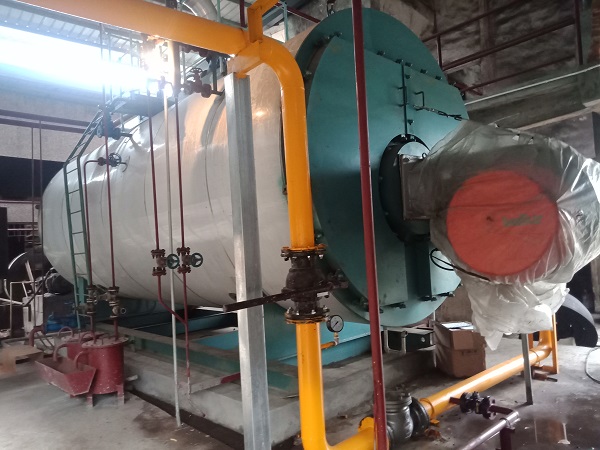Guide: Boilers are special equipment, pressure vessels, and energy conversion equipment. They use other chemical fuels to burn to produce heat and then convert energy, transfer the heat, and raise the temperature of the boiler water to produce steam or hot water. Working process.
Boilers are special equipment, pressure vessels, and energy conversion equipment. They use other chemical fuels to burn to produce heat and then convert energy, transfer the heat, and raise the temperature of the boiler water to produce steam or hot water. Working process.
Boilers can be divided into steam boilers and hot water boilers according to product usage. They can be divided into horizontal boilers and vertical boilers according to their size. According to pressure, they can be divided into pressure-bearing boilers and atmospheric boilers. And double drum boilers can be divided into small boilers, medium boilers and large boilers according to the rated evaporation capacity (rated thermal power), and can be divided into ordinary boilers, low nitrogen boilers and ultra-low nitrogen boilers according to the degree of environmental cleanliness.
What kind of fuel does the boiler use?
Boilers can be divided into four categories according to fuel classification: gas fuel, solid fuel, liquid fuel, and new energy fuel. Gaseous fuels are divided into natural gas, liquefied petroleum gas, coal gas and biogas, solid fuels are divided into coal, biomass particles, etc., liquid fuels are divided into methanol, light oil, and heavy oil, and new energy fuels are divided into electricity.

Mainstream products in boiler fuel:
In the past, the mainstream fuel form of boilers was coal burning, but with the strengthening of environmental policies, traditional coal-fired boilers did not meet environmental policy indicators, so small coal-fired boilers were banned. With the elimination and banning of coal-fired boilers, new environmentally friendly fuels for boilers emerged and quickly occupied the market position. At present, four major types of boiler products, mainly gas boilers, oil-fired boilers, biomass boilers and electric heating boilers, have developed rapidly .
Gas boiler:
Gas boilers burn natural gas, biogas, liquefied petroleum gas and coal gas as the main gas fuels, but in general, natural gas fuels are the most used, which have the advantages of clean pollution and high thermal efficiency.
Oil boiler:
The main engines of oil-fired boilers and gas-fired boilers are the same, but the burners used are different. Gas-fired boilers use gas-fired burners, and oil-fired boilers use oil-fired burners. Oil-fired boilers are better for local gas pipelines that are not open replacement of.
Biomass boiler:
Biomass boilers burn biomass pellets. Biomass pellets are processed from agricultural wastes such as straws and peanut shells. It has the advantages of energy saving and emission reduction and less pollution. It is a product with a lower operating cost after coal-fired boilers. .
Electric heating boiler:
The electric heating boiler is the working process of receiving heat through the electric heating group in the boiler, converting the heat into energy, and finally producing steam or hot water. It has many advantages, such as intelligent operation, safety and reliability, and high thermal efficiency. Its disadvantage is the high operating cost.
Whether it is gas boilers, oil boilers, biomass boilers and electric heating boilers, they all have their own shortcomings and shortcomings. When we choose boiler products, we choose the product that suits our own boiler.




























